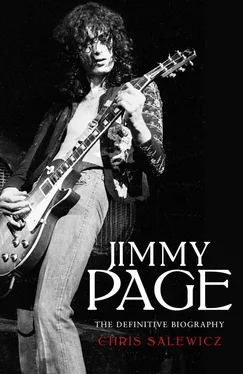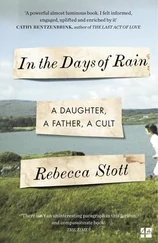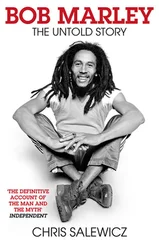‘When I grew up there weren’t many other guitarists,’ he told America’s National Public Radio in 2003. ‘There was one other guitarist in my school who actually showed me the first chords that I learned and I went on from there. I was bored so I taught myself the guitar from listening to records. So obviously it was a very personal thing.’
But he also had a seemingly separate life as a choirboy. Each Sunday, wearing the appropriate surplice and cassock, he would sing hymns at Epsom’s St Barnabas Anglican Church. The first image in his 2010 photographic autobiography is of him in this mode – clearly he is being ironic. As so often in the life of Jimmy Page, cold realism lay behind the impetus for his choirboy stints.
‘In those days it was difficult to access rock ’n’ roll music,’ he said to the Sunday Times in 2010, ‘because after all the riots happened in the cinemas, when people heard “Rock Around the Clock” in the film Blackboard Jungle , the authorities tried to lock it all down. So you needed to tune in to the radio or go to places where you could hear it. It just so happened that in youth clubs they would play records and you’d get to hear Elvis, Jerry Lee Lewis and Ricky Nelson – but you had to either go to church or be a member of the choir to go to the youth club.’
Page had many of the characteristics of the only child, burying himself in books and, almost the ultimate cliché, collecting overseas postage stamps. But more and more since discovering that Spanish guitar at Miles Road, he immersed himself in becoming adept on the instrument. ‘The choirmaster at St Barnabas remembered that I used to take my guitar to choir practice,’ he said, ‘and ask if I could tune it up to the organ.’
In Epsom there is a prominent motorcar showroom named Page Motors. It has often been claimed, even by myself, that this business is owned by members of Page’s family. But this is not the case at all. His relatives on his father’s side came from Grimsbury in Northamptonshire, and his paternal grandfather had been a nurseryman, tending to plants. (An irony that would not be lost on Page, who later had a Plant of his own to deal with, of course.) On his father’s side there was Irish blood.
At 122 Miles Road, at the far end of the street from the Page family home at number 34, lived a boy of similar age to Page called David Williams. According to Williams, Miles Road, which lay to the west of Epsom, was distinctly the wrong side of the high street. To the east lay the plush property in which affluent commuters to London were ensconced. The Page house backed onto the railway line that transported these people to the capital, less than 20 miles away, and was identical to the Williams home, having a downstairs living room and dining room and a pair of bedrooms upstairs. Downstairs, beyond the kitchen, was an outside toilet. Although most of these houses, including the Pages’, later had this feature adapted into a full bathroom, there is no getting away from the fact that these were distinctly basic homes.
Page’s father worked in nearby Chessington, a personnel manager at a plastic-coating factory, and his mother was the secretary at a local doctor’s practice. Despite the impeccable ‘BBC English’ – as such received pronunciation was known at the time – with which rock star Jimmy Page would express himself, his background was no more than lower middle-class, almost jumped-up working-class.
Another good friend, Peter Neal, lived on Miles Road. Page, Peter Neal and David Williams would hang out at each other’s houses. Gradually Page’s home – without any brothers or sisters to get in the way – became a focal point. He also had the advantage of enjoying both parents – although Wyatt mentions some growing tension between his mother and father. When Williams was just 13, his own mother had died: ‘I am certain that Jim’s mother was the initial driving force behind his musical progression. She was a petite, dark-haired woman with a strong personality, a glint in her eye and wicked sense of humour. She liked to tease me in a good-natured way, but let me hang out endlessly in their front room with Jim. I think she must have known my mother and, given the new circumstances I found myself in, I guess she felt sorry for me. Although I didn’t realise it at the time, I can now appreciate her kindness and tolerance, for I must have been a fairly constant presence in her house.’
After hearing Chuck Berry, the black poet of rock ’n’ roll sensibility, on American Forces Network radio broadcasting fuzzily from Germany in 1956, Williams acquired a UK EP that gathered together the songs ‘Maybellene’, ‘Thirty Days (To Come Back Home)’, ‘Wee Wee Hours’ and ‘Together (We Will Always Be)’. He and Page played it incessantly, the latter being especially taken with ‘Maybellene’ and its tale of amorous automobile class struggle, and with ‘Thirty Days’.
From the equipment Page quickly began to amass, it seems that this only child was a little spoilt – or, at least, certainly lucky. He was the first of his friends to acquire a reel-to-reel tape recorder, which he soon replaced with a newer model, selling the older one to Williams so he could then pass on the tapes of songs he would diligently record off the radio.
Discerning in their taste, certainly to their own minds, these boys truly cared for only a handful of artists: Elvis Presley, Gene Vincent, Little Richard, Chuck Berry and Jerry Lee Lewis – the eccentric and wild Jerry Lee, with his 13-year-old bride, being Page’s especial preference. Eddie Cochran would soon emerge to join this pantheon.
They would visit and revisit their local cinemas to watch such films as The Girl Can’t Help It , a minor triumph in 1956 that featured Little Richard, Fats Domino, Eddie Cochran, Julie London and the Platters. Also released that year was the more pedestrian Rock, Rock, Rock! , which had a highlight performance of ‘You Can’t Catch Me’ by Chuck Berry, his patent-leather pompadour and sneering grin permanently lending him the appearance of one of those black pimps whose look Elvis Presley had tried so hard to emulate. One Saturday afternoon in 1960 Page and Williams would hitchhike 50 miles to Bognor Regis to catch Berry performing a solitary tune in the classic film Jazz on a Summer’s Day .
In the record department of Rogers, an electrical goods shop on Epsom High Street, the three boys ingratiated themselves with the girl behind the counter. This ally would provide them with glimpses of record-company schedules of forthcoming releases. The boys would search out the most interesting names. ‘Frankie Avalon and Bobby Rydell were clearly to be overlooked in favour of the likes of Screamin’ Jay Hawkins or Big “T” Tyler,’ recalled Williams. ‘Also, song titles could often be a good indication of something a little stronger. The dreaded “A White Sport Coat (and a Pink Carnation)” was hardly going to evoke the sort of enthusiasm and anticipation we would have for titles such as “Rumble”, “I Put a Spell on You” or “Voodoo Voodoo”, was it?’
Soon appreciating the limitations of his Spanish acoustic instrument, Page worked for some weeks during the school summer holidays on a milk round, until he had saved up enough money to buy a Höfner President acoustic guitar. ‘It was a hollow-bodied acoustic model with a simple pickup,’ said Williams, ‘but when he attached it to a very small amplifier, it made something like the sound we all admired. I can recall that Saturday morning when I was summoned to his house to first feast eyes on it. Jim was like the cat with the cream. Pete and I were allowed a strum, but by now we realised that any aspirations we might have had in that direction were going to be dwarfed by Jim’s talent, desire and progress.’
Читать дальше












